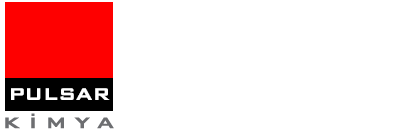The Importance of Adhesion Technologies
With the developing and changing technology, the production methods used in the industry also change. In the past, the most common method used to join parts was cyanoacrylate adhesives (cyanoacrylate adhesives), which are called welding and Japanese adhesives, but now all adhesive types are divided into groups according to their intended use.
Bonding processes of different materials (glass, different types of metals, different types of plastics, wood, concrete, marble, etc.) with an adhesive suitable for working conditions (high temperature, working under water, chemical-acid-steam contact, etc.) examined below.
RFID Technologies in Industry
What is RFID Tag, How Does It Work?
RFID tags for electronic tags that contain small circuits and have a chip and antenna. This type of labeling systems, which enable to identify objects using radio frequency, are generally used to identify, control and count product features. Rfid basically consists of a tag and a reader. It communicates with the chip readers in the tag, can transmit and receive data. When the RFID tag enters the reader area, it is detected by the reader and transmits the information stored in the chip, together with its own code, to the reader via the antenna. The antenna in the RFID tag provides the reader to communicate with the chip. Rfid tags themselves have a unique identification code and all kinds of information about the objects to be recognized are recorded.

Importance of RFID Technology
The world is now in a process where the transition from the concept of industrialization to the concept of digitalization is accelerating, and the digitalization of the industry is aimed especially with the Industry 4.0 revolution. Production – supply chain management, and the concept of information accuracy entered both the industry and our individual lives through QR codes and rfid tags; Now, no matter what we buy from anywhere, the QR code or RFID tags on the product can be scanned with the software prepared in accordance with the purpose, and the content of the product, production stages, features and all the information desired to reach the user can be accessed.
Although RFID tags are preferred in almost all industries such as electronics, food, automotive, defense industry, aviation, iron – steel, medical, this transition cannot be made in some sectors due to difficult production conditions and application areas.
As we mentioned at the beginning of our article, RFID tags are used in many sectors. While RFID tags provide reduced manpower costs, automatic stock control, product tracking, and accessible inventory information, they accelerate business processes and allow the best possible reporting.
Example of Using RFID Technology with Industry 4.0
Let’s examine a company that produces blocks, slabs and tiles specialized in the natural stone sector, as one of the best examples of the RFID tag system integrated with Industry 4.0.
It is difficult to work with the rfid tag system in natural stone mining due to environmental conditions. Because the working environment is extremely dusty. As seen in the picture, the dusty stones extracted from the mine are processed with machines that run continuously in order to both remove the dust on them during the cutting process and to remove the dust formed during the slicing process from the product. After the natural stones coming from the quarry are sliced in the dimensions requested by the customer, the RFID tags containing the date of exit from the quarry, the type of stone, fossil features and size information are attached. The difficulty of the process starts at this point. While the sliced natural stones are washed with water, they retain some water due to their structure, so their surfaces are always moist. In the process of sticking labels to this damp and recessed surface, the adhesive;
- Provides grip on wet surface,
- Fast curing,
- Fill in the blank,
- Being suitable to work in the robotic automation system,
- After the labeling process, it is expected that the adhesive will not leave itself in the ongoing water and brush contact in the brush washing process on the conveyor line until it goes to the warehouse.
As the Pulsar Kimya family, we become your solution partner with our acrylic adhesive products that are both sensitive to your needs and sensitive to the environment and human health, even in these difficult working conditions, and we walk together with you to become the leader of your industry.


